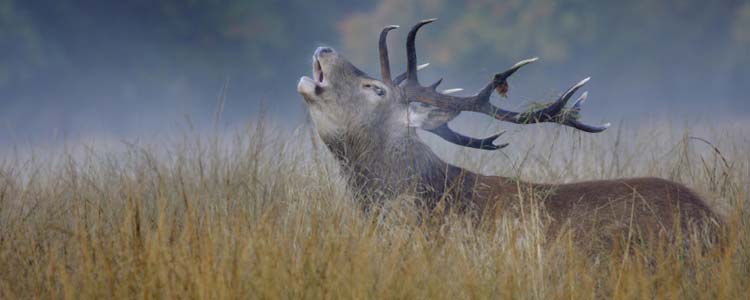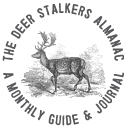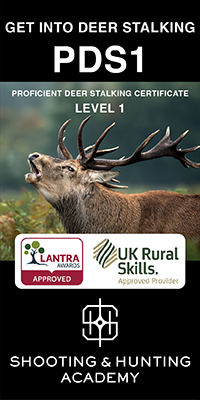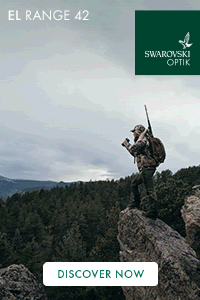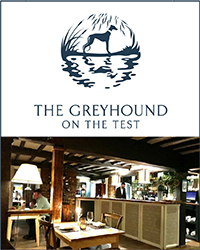Anthony Malkin considers how best to go about obtaining a deer stalking lease.
Your relationship with landowners who have the authority to allocate you stalking rights, is a vitally important one. Without his or her full support and co-operation, you will simply endure a frustrating time.
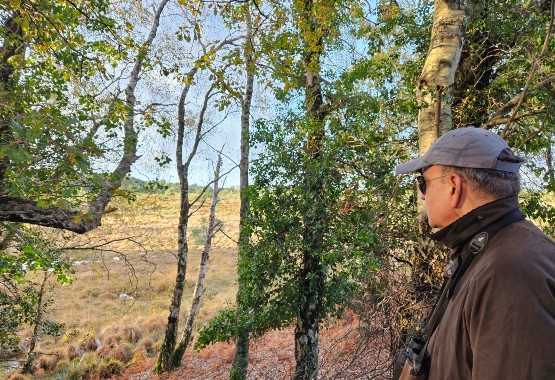
On first meeting, you need to reassure the owner that you are not only competent at what you do but are able to handle difficult situations with members of the public and neighbours. Despite being country folk, not everybody supports deer culling. So, people management, forms a vital function in your deer management activities.
When approaching a landowner and asking for the stalking rights, put yourself in their shoes and consider the problem from their perspective, particularly if you are an unknown quantity to them. The following thoughts will be going through their mind:
- Who is this person wanting to stalk my land?
- What is his deer stalking background?
- What is his employment, and will he therefore have sufficient time to manage the deer?
- How do I know if he is competent at what he does?
- Is he /she the sort of person who can deal diplomatically with a challenge from a member of the public?
- Will he, as a result of his stalking activities, cause me problems?
- Is he insured?
- How liable am I if the stalker does something wrong?
- What is the deer management plan – his ideas or mine as the landowner?
- How do I check that he is following the agreed management aims?
- Does he have the tact to work with those who are on the estate?
- What is in it for me?
Therefore, as the prospective stalker you may wish to consider some answers to the questions above:
Who is this person wanting to stalk my land?
Ideally you are introduced to the landowner by a colleague who knows the landowner and who is trusted by the landowner. In that way you are not a complete unknown and the risk to the landowner is limited based on the trust he has with the third party. If you “cold call” in person then the task is harder. One approach is to offer your deer management services at no cost to the landowner That you have a police-approved Firearms Certificate can also reassure the uninitiated to deer stalking. Your smart appearance will go some way to making a positive impression.
What is his deer stalking background?
You need to be able to reassure the landowner of your competence to manage deer. Deer Stalking Certificates PDS1 & 2 go a long way to proving that you have some experience. Clearly references are also important.
What is his employment and will he therefore have sufficient time to manage the deer?
The stalker’s employment has a bearing on the time he has to manage the deer population. As stalking rights are so hard to come by, stalkers naturally hoard the ground they have and often over-extend themselves, and as a consequence, fail to manage the animals effectively.
How do I know if he is competent at what he does?
The number of stalking years could be regarded as a rough indication of competence. Dated certificates will indicate how long the stalker has qualified at each level of experience. If the landowner has no deer stalking / management knowledge he will probably ask other workers on the ground to form an opinion. It goes without saying that co-operation with others is an essential element of effective stalking. The stalker may be asked for references but that raises the question of why he wants more ground . This point could be a double edged sword.
Is he /she the sort of person who can deal diplomatically with a challenge from a member of the public?
If the landowner receives a complaint from a member of the public or closer to home, from a neighbour on the boundary about the activities of his deer stalker, you must ask yourself whose side is he likely to take. The stalker is transient but the neighbours are more permanent and therefore the odds are stacked against the stalker. Therefore , it follows that with any disagreement, the stalker has to tread carefully. That does not mean he should not stand his ground in an argument, but it should be done firmly and with tact. This point accepts that there are some who will object to deer management in principle and their minds are closed from the very start. Move on and do not waste time with them, but consider explaining your deer management rationale to those who are genuinely interested and wish to know more.
Will he, as a result of his stalking activities, cause me problems?
It is advisable to include in the deer management agreement a clause that states that the landowner has inspected your documents to include FAC; insurance and certificates of competence. In this way he has demonstrated his “duty of care” before allowing you to stalk. If any problem arises then he is most likely to be absolved of any responsibility as he has done all in his power to check the stalker’s competence.
Is he insured?
The stalker is strongly advised to prove that he is insured, for without that cover the landowner may be liable.
How liable am I if the stalker does something wrong?
The landowner will be acutely aware that he is placing his trust in the stalker and will want to mitigate any risk. By offering to show him and prove your competence, he is more likely to be reassured that any problems fall on the stalker’s shoulders and not on his. It is equally a measure of the stalker’s confidence in his ability to assume all risks.
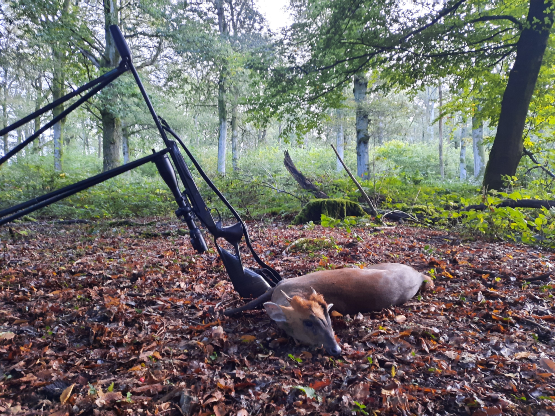
What is the deer management plan – his ideas or mine as the landowner?
A thoughtful stalker will have thought through the possible options for the ground that he wishes to manage. That assumes of course , that he has some knowledge of the ground and the number and species of the deer there. By offering some suggestions the stalker is well on the way to achieving his aim of getting the stalking rights. Management options could be:
- Conservation by reducing numbers.
- Herd management by reducing numbers to ensure herd health.
- Selective culling to reduce numbers.
- Venison production
- Income generation
- Trophy hunting but this is a contentious point and worth leaving for the landowner to suggest it.
If the stalker is not given any clear direction then it is for him to create the management plan with quantifiable objectives. This is also a measure of confidence in that it shows that he is prepared to be called to account at the end of the season.
How do I check that he is following my management aims?
A clear, straightforward and quantifiable management plan will go some way to reassure the landowner that his aims or the joint and agreed aims are being achieved. This means that cull records need to be kept and linked to game dealer invoices. In this way the third party involvement (the game dealer) is a measure of transparency and honesty on the part of the stalker.
Does he have the tact to work with those who are on the estate?
On most large areas / estates / farms there are many others who are employed. Deer culling requires a considerable degree of co-operation with all other interested parties. After all , they are the ones who can be utilised as a source of information regarding deer movements and sightings.
What is in it for me?
This point takes the stalker back to the management aims. Landowners will more often than not charge for the permission to stalk on their ground. There is of course value in the carcasses and it is often worth asking if the owner enjoys venison. If the answer is yes then consider providing venison occasionally for him.
In summary, the relationship between landowner and stalker is based on mutual trust and respect. The stalker is given a wonderful opportunity to enjoy the countryside and he should respect that chance by providing a competent deer management service to justify retaining the rights for a protracted period of time.
If you are interested in learning more about obtaining a deer stalking lease and how to assess land and manage deer, you may wish to consider taking the Proficient Deer Stalking Certificate Level 2 (PDS2).
The PDS2 is a Deer Stalking Qualification that is designed to follow on from the foundation skills achieved during the PDS1.
The level 2 course consists of two elements, a taught element delivered via the ‘UK Shooting & Hunting Academy’ through a series of modules and classes, and a practical demonstration of skill by the candidate, that is observed by a PDS Approved Verifier in the field.
The initial taught element elevates the candidate’s knowledge in key areas, that include subjects such as, an advanced understanding of firearms and optics, ageing and assessing the condition of deer, how to assess the suitability of land for stalking, how to carry out risk assessments, record keeping and deer management plans.
To find out more about the PDS2 follow this link: proficient-deer-stalker-certificate-level-2




